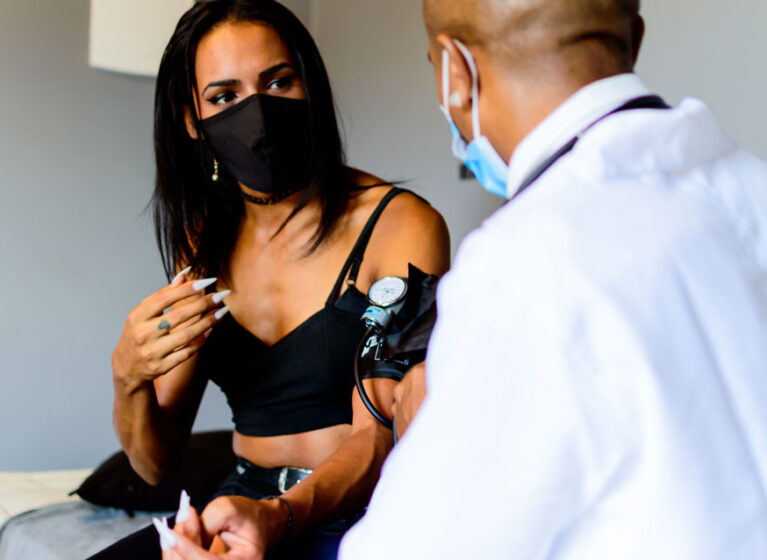
For many patients whose sex assignment at birth is at odds with their gender identity, the decision to undergo gender-affirming surgery is the culmination of a lifelong journey to self-expression and overall wellbeing. Finding a high level of surgical expertise combined with empathetic patient support, however, can prove challenging.
UVA Health is the only hospital in Virginia — and one of the few in the country — to offer the full complement of gender-affirming bottom surgery options for transgender adults, including vaginoplasty, metoidioplasty, and phalloplasty.
Hope for Transitioning Patients
One of the biggest barriers to healthcare access reported by transgender individuals is the scarcity of providers who are sufficiently knowledgeable about their unique needs. Other obstacles include financial limitations, discrimination, lack of cultural competence by providers, health systems barriers, and socioeconomic concerns.
UVA Health offers hope for these patients, delivering the full spectrum of healthcare for transgender patients. A urologist and plastic surgeon perform gender-affirming procedures in tandem, ensuring the best possible results in appearance and function to align with patients’ needs and goals.
“Surgery is the last step in a patient’s transition process,” says UVA urologist Sean Corbett, MD. “My experience thus far is that when these patients come in after their procedures, there seems to be a weight lifted — much relief. They’re noticeably satisfied and visibly at peace with who they are.”
Comprehensive Gender-Affirming Surgery
Gender-affirming bottom surgery involves adding or removing sex characteristics and features so that a patient’s physical appearance matches their gender identity. These procedures account for 4-13% of gender-affirming surgeries, compared to 8-25% for top surgeries, which remove or add breasts.
UVA offers the full range of male-to-female (MTF) and female-to-male (FTM) bottom surgeries, including (but not limited to):
- Vaginoplasty – Creation of female genitals with or without a vaginal canal. This may involve penile skin inversion, with or without scrotal skin grafting and/or development of a peritoneal flap.
- Orchiectomy – The removal of the testicles.
- Metoidioplasty – The construction of a small phallus from the hormone-enlarged clitoris.
- Phalloplasty – A 2-stage procedure to create a functional penis and urethra using tissue from patient’s forearm or thigh.
“In every patient encounter, our primary goal is to firmly establish what their needs are, so that we can help them achieve those,” Corbett says. “It’s important for us to know where they want to end up so that we can help them get there.”
Transgender patients can undergo complete gender transformation at UVA, including facial plastic surgery, which alters the shape and structure of the face to look more masculine or feminine. Candidates for these procedures must be aged 18 and up and meet the World Professional Association for Transgender Health (WPATH) standards of care requirements.
Multidisciplinary Transgender Care
UVA strives to be a welcoming place for all patients to receive care. Providers offering transgender services follow the clinical practice guidelines from the Endocrine Society. UVA earned recognition from the Human Rights Campaign Foundation for team members’ support of LGBTQ patients.
Gender-affirming surgery is just one part of a patient’s transition from their sex assignment at birth to the sex matching their gender identity. From primary care, hormone therapy and gynecology to urology, mental health services, voice therapy, and more, UVA offers the full spectrum of affirming, inclusive care for adult transgender patients.
“It's a big team,” Corbett says. “And quite frankly, our first line of care is the family practitioners. They are going to be the ones who are instrumental in starting these patients on their journey and helping them through the many complexities involved. It takes a village to provide the comprehensive care that is long overdue to this patient population."